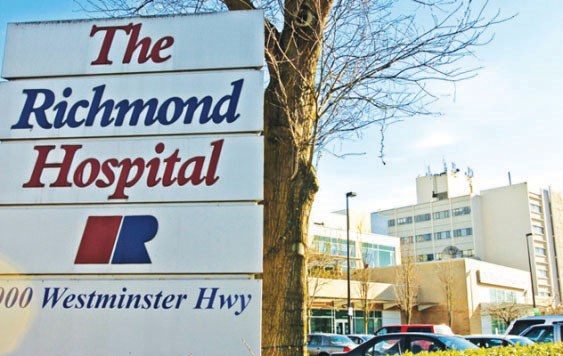Public health agencies across Canada are awaiting the results of an investigation by the U.S. Centers for Disease Control into how two nurses at a Dallas hospital caught Ebola after treating a Liberian man who later died from the virus.
Nurses treating the patient were reportedly dressed in protective gear recommended by the CDC, but one nurse at the hospital told reporters she felt exposed because her neck remained uncovered.
The infections show the need for better protective equipment, B.C. Nurses' Union president Gayle Duteil said Thursday.
"We're very saddened about what's going on in Texas because nurses stick together and our hearts go out to them. But nurses here have been expressing strong concerns about the lack of preparedness in B.C.," she said.
"We need to see improvements immediately in the personal protective equipment that is provided. Not only that, training has to be provided on this equipment as it's not something that you just put on and off.
"There's a donning and doffing procedure, and the removal of the equipment is an extremely dangerous process. That's where cross contamination can occur."
"It's a skill set that has over 30 particular steps to it," she said. "There has been no training provided although we're seeing some action now, but only after we sent a letter to the president of every health authority on Tuesday expressing our concerns about the province's lack of preparedness to face this issue.
"We're having ongoing discussions with the health authorities and the minister of health, who appears to be listening to the nurses' concerns. But this virus is changing daily, and the precautions will need to change daily as well."
Asked if she thought the equipment for nurses in B.C. was adequate, Duteil said it wasn't.
"When the nurses of this province are jumping up and down asking for a respirator mask, an M-95, instead of the surgical mask you see people wearing on the streets of Vancouver, then there's a problem," she said. "Every possible piece of protective equipment must be provided to nurses caring for these patients. It's time for the health authorities to step up to the plate and look after nurses."
Dr. Patricia Daly, the chief medical health officer for Vancouver Coastal Health, said protective equipment supplied to nurses here followed the guidelines of the Public Health Agency of Canada, which does not mandate a full protective suit for dealing with highly infectious patients.
"Our guidelines describe a head cover, mask, a full face shield, a gown designed so splashes of body fluid won't soak through, and footware that covers the legs," said Daly. "We know the virus is transmitted through blood or body fluid, so it's about preventing contact with the mucus membranes - the eyes, nose and mouth - or non-intact skin (of a nurse).
"I'm confident that we have the infection controls and equipment in place in the unlikely event we see Ebola here."
Daly explained that local health authorities "have no idea if exposure of the neck has caused a problem but, of course, we will look at any lessons learned in Dallas, and if we have to adjust we will. We are following the investigation very closely, but right now our focus is to make sure our staff are trained and feel confident if they see a case in Canada."
Daly said hospitals throughout the region were preparing themselves to deal with a possible Ebola emergency.
"We have not designated any hospital (to receive cases). We have said every hospital in our region needs to be prepared because you never know who is going to walk into your emergency department," she said.
The only designated facility is Richmond Hospital, which has a long-standing agreement with the government's Quarantine Services to handle any person arriving ill at YVR.
Medical staff at Richmond Hospital have been practising donning and removing protective clothing this week.
"It's important to practise a buddy system when the equipment is being taken off because that's the high-risk time as it could be contaminated. So someone should be observing you doing that," she said.
About 30 passengers a week arrive in Canada after travelling from the three African countries in the forefront of the Ebola crisis, said Robert Cyrenne, communications officer for the Public Health Agency of Canada.
"Persons arriving after travelling from Sierra Leone, Guinea and Liberia are all referred to a quarantine officer for assessment," said Cyrenne.
Canada Border Service officers monitor the initial departure point of all passengers arriving in Canada. Those who began their journeys from the three affected countries are required to be assessed even if they have no signs of illness, Cyrenne said.
All of Canada's main international airports - Vancouver, Montreal, Toronto, Ottawa, Halifax and Calgary - have highly trained quarantine officers who check the health of passengers "as well as asking pertinent questions" to determine if they pose a public health risk, he said.
There are no direct flights to Canada from Africa, so visitors have first to travel to Europe before flying here. Most of the passengers from the three African countries fly into Montreal or Toronto, said Cyrenne.
For more stories, go to vancouversun.com



